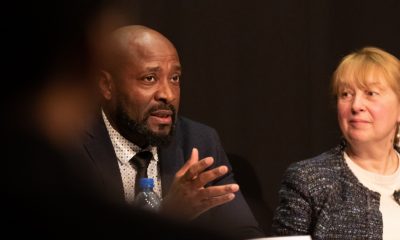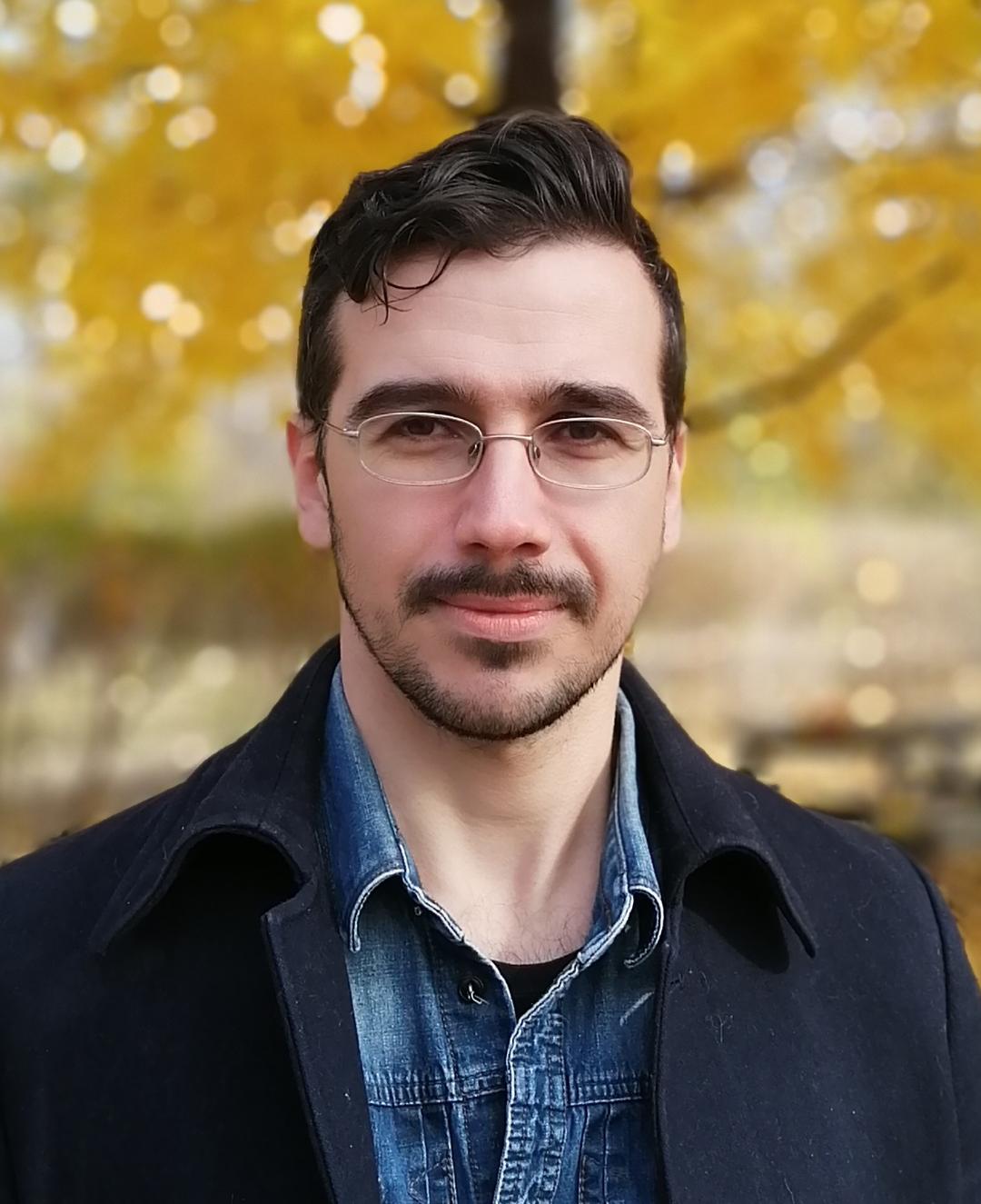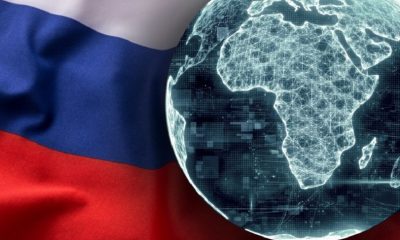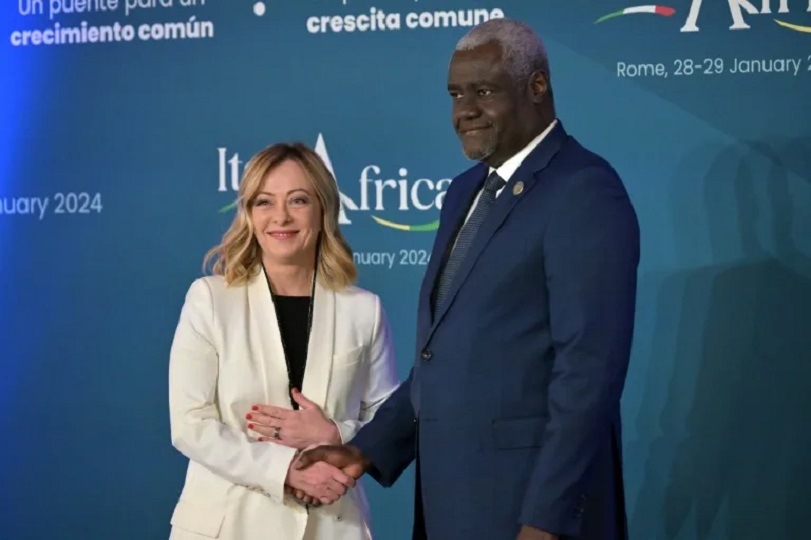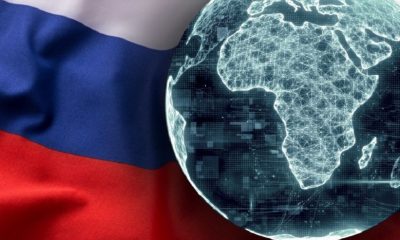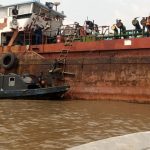World
Russia Struggling to Explore Africa’s Market
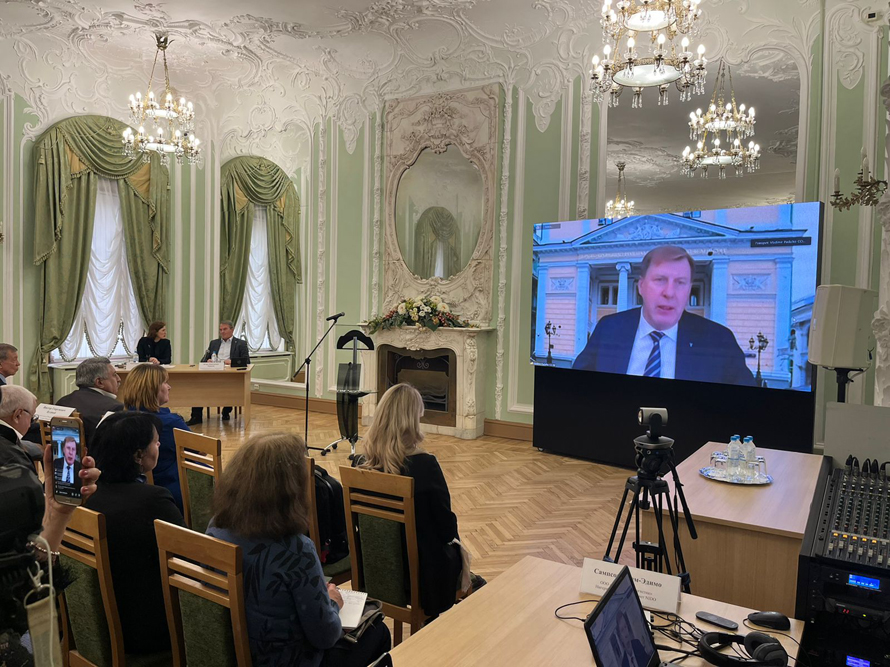
By Kestér Kenn Klomegâh
Building on post-Soviet relations with Africa, Russia has been struggling with strategies on how to establish economic footprints, promote investment and deepen cooperation in Africa. Despite the road map adopted at the end of the first Russia-Africa summit held in October 2019, little has been achieved since then.
In late September, the Regional Chamber of Commerce and Industry welcomed the participants to another round of conferences under the theme “Russia-Africa: Prospects for Cooperation” held in St. Petersburg. That gathering featuring a few interesting Russian enterprises was part of a series of steps to brainstorm and discuss opportunities, developments and challenges in preparing for the forthcoming Russia-Africa summit planned for July 2023.
Additionally, the goal of this St Petersburg conference event was in line with the priorities on how to engage with credible investors who can partner with the government and private sector to exploit the market. It discussed the possibilities of strengthening the partnership between Russia and Africa, as well as issues related to export/import, logistics and peculiarities of working with African partners.
Vice President of the Chamber of Commerce and Industry of the Russian Federation Vladimir Padalko welcomed the participants via video link from Moscow. In the video, Padalko emphatically stated that “preparations for the second Russia-Africa summit, scheduled for July 2023 in St. Petersburg, are in full swing, and we should come to it with concrete results in the form of agreements ready for signing.”
According to him, the Coordinating Committee for Economic Cooperation with African Countries should focus on conducting business missions that would identify specific areas for conducting business cooperation with African countries. It is necessary to help Russians learn what the African market is so they are not afraid of taking investment risks in Africa.
Padalko said that the prejudices that Russians have regarding Africa should be overcome. He referred to his own experience, emphasizing that the first trip to the African continent made him change his mind significantly about the opportunities offered by cooperation with Africa. Russia is trying hard to improve its commercial relations with its African partners. In 2009, it established the Coordinating Committee for Economic Cooperation with sub-Saharan Africa to assist in promoting Russian business interests.
Senator Igor Morozov, Chairman of the Coordinating Committee for Economic Cooperation with African Countries, called for increasing the pace and level of cooperation with African countries by “bringing small and medium-sized businesses to Africa.”
According to him, Russia is far behind in its activity on the African continent from countries such as the United States, Britain, China, France, India, and Turkey. These countries are developing a network of technology parks, working in the continental free trade zone, participating in the development of the infrastructure of African countries, and the construction of roads, bridges and railways.
Senator Morozov further noted that “Russian business does not have the tools to enter Africa and, above all, in the field of the banking system. No other banks give guarantees to Russian businesses. According to him, African countries are interested in the supply of agricultural machinery; in this sense, the Kirov Plant in St. Petersburg may have good opportunities. And in this sense, we should take an example from our Belarusian friends.”
That was not the first time analyzing the development of business and trade relations with Africa. The African market is competitive and complex, therefore, Russian business needs to work thoroughly and systematically in it in order to achieve success. It is necessary to help interested businesses willing to navigate African realities, find a niche for their work, and learn about the conditions for entering certain markets.
According to Morozov, there is a need for a specialized investment fund to support entrepreneurs. In general, with the prospect of working with African partners for many years, more serious state support is needed and finally suggested that it is necessary to return to barter trade and concessions, which will make it possible to obtain minerals from Africa.
“We need to develop our international payment instruments – sanctions are already being imposed against the Mir system,” he said. A great deal of hope is being placed on the working group for developing new mechanisms in currency regulation and international settlements led by Kremlin aide Maxim Oreshkin, “which is supposed to work out these mechanisms soon,” Morozov said.
“We need to see how we will work within the framework of national currencies” and use them for settlements with African countries, he said. “We need to work in this direction, understanding that SWIFT will never again be [the main system for interbank payments] for us,” Morozov, who also serves on the Federation Council’s Economic Policy Committee, said.
Talks on options for settlements between Russia and African countries in the current economic circumstances are already being held, but “we shouldn’t get ahead of events. African central banks are already beginning to come [to Russia]. Everyone understands that we are leaders in grain exports, leaders in sunflower oil, mineral fertilizers, and it is necessary to settle up,” Morozov.
Other options for settlements could be barter and concessions. The outlook for cooperation and possible Russian projects in Africa, Morozov said Russia could offer its competencies in hydropower, electric passenger transport, automobile manufacturing, farm machinery and pharmaceuticals. Afrocom operates with the support of the Federation Council and government institutions, according to the committee’s website.
Associate Professor Ksenia Tabarintseva-Romanova, Ural Federal University, Department of International Relations, acknowledges huge existing challenges and perhaps difficult conditions in the current economic cooperation between Africa and Russia. Creating African Continental Free Trade Area (AfCFTA) is the most important modern tool for Africa’s economic development. This is unique for exploring and getting acquainted with the opportunities it offers for business cooperation.
She, however, maintains that successful implementation requires a sufficiently high level of economic development in the participating countries, logistical accessibility, and developed industry with the prospect of introducing new technologies. This means that in order for African Continental Free Trade Area to effectively fulfil its tasks, it is necessary to enlist the provision of sustainable investment flows from outside. These investments should be directed toward constructing industrial plants and transport corridors.
Speaking earlier in an interview discussion, Tabarintseva-Romanova pointed out that Russia already has vast experience with the African continent, which now makes it possible to make investments as efficiently as possible, both for the Russian Federation and African countries. In addition, potential African investors and exporters could also explore business collaboration and partnerships in Russia.
Local Russian media, Rossiyskaya Gazeta, also published an interview with Professor Irina Abramova, Director of the Institute of African Studies under the Russian Academy of Sciences, focusing on economic cooperation with Africa. In this interview, Abramova reiterated explicitly that Russians have to do away with negative perceptions and attitudes toward Africa. The change in attitudes has to reflect in all aspects of the relationship between Africa and Africans.
“In Russians’ minds, Africa is synonymous with backwardness, poverty and hunger, which is not true. It is currently one of the most promising regions for foreign investment. It is a tiger ready to pounce. Africa today is in the same situation that China was in the 1990s. Today, China is the world’s number-one economy in purchasing capacity, a strong power which largely determines global development,” she explained.
“Africa is the zone where all big players overlap since its geographic location between the east and the west puts it at the peak of controversy and the big game between all players, meaning between Europe and America, on the one hand, and China, India and other countries, on the other. And if Russia poses as a superpower it will also lose its global influence without indicating its position in Africa,” she said.
According to her, seven African countries, specifically Egypt, Algeria, Morocco, South Africa, Tunisia, Nigeria and Sudan, account for nearly 90% of Russia’s trade. “At the same time, China is present in almost all African countries. Millions of Chinese work in Africa today. It is a good moment for Russia now because Western partners are trying to impose their values on the Africans, while China is dealing with its challenges at the expense of Africa,” the expert stressed.
The middle class is expanding very fast there, already amounting to 250-300 million people, and this constitutes a huge consumer market for products and services, according to her estimation.
Professor Abramova noted that it is a very good market for Russian products. The Chinese understood that long ago and are tapping the African market, having flooded it with their products, though Russia also has opportunities as it is fairly competitive in the energy, infrastructure and agriculture sectors and exporting products such as fertilizers, trucks and aircraft supplies.
The fact that many prominent politicians and businessmen of the African continent graduated from Russian universities and speak Russian well contributes to the strengthening of the Russian-African relationship, the expert said, adding though that a new generation is about to take over in Africa, which is also the reason why Moscow should maintain the existing solid social and cultural ties.
Senator Igor Morozov and Professor Irina Abramova are members of the Kremlin’s Committee assigned to coordinate and prepare for the next Russia-Africa summit in July 2023. Both Russia and Africa had problems finding a suitable African venue for the summit. The joint declaration adopted in Sochi says the summit be held every three years and the venue alternated between Russia and Africa.
Sampson Uwem-Edimo, President of the Nigerian Business Council and General Director of Trailtrans Logistic LLC, delivered a report “Nigeria as a Window to Africa” and further stressed that Russia does not have a common strategy on how to enter African markets, which exists, say, in China or France.
By removing barriers to trade in the region will create new entrepreneurial activities and spur innovations in technology. The African Continental Free Trade Area (AfCFTA) seeks to create better conditions for investment. On the other hand, Russian corporate directors most often have problems with their business in Africa. The key obstacles ranging from their inconsistencies in own approach and poor knowledge of the local political and business environment. Russians must also invest more in R&D collaborations with their African partners.
According to him, while Russians hope for brisk business, many African business leaders today are still Western mind-oriented and have various support from the United States and Europe. But the practical reality, Russia could still steadily transfer technologies for local processing of raw materials as a catalyst for Africa’s development.
Uwem-Edimo noted that former colonial powers like France and Great Britain, although they left their colonies, kept control panels in their capitals. The Nigerian businessman, who spoke in Russian, introduced the conference participants to the opportunities and vast potential of the African continent, focusing on Nigeria, which makes up 18 per cent of the continent’s population – 240 million people.
President of the St. Petersburg Chamber of Commerce and Industry, Vladimir Katenev, also addressed the conference participants with a greeting. The moderator was Ekaterina Lebedeva, Vice-President of the St. Petersburg Chamber of Commerce and Industry Union, who called on business community representatives to consistently work towards prioritising Africa despite the emerging challenges.
World
Today’s Generation of Entrepreneurs Value Flexibility, Autonomy—McNeal-Weary

By Kestér Kenn Klomegâh
The Young African Leaders Initiative (YALI) is the United States’ signature step to invest in the next generation of African leaders. Since its establishment in 2010 by Obama administration, YALI has offered diverse opportunities, including academic training in leadership, governance skills, organizational development and entrepreneurship, and has connected with thousands of young leaders across Africa. This United States’ policy collaboration benefits both America and Africa by creating stronger partnerships, enhancing mutual prosperity, and ensuring a more stable environment.
In our conversation, Tonya McNeal-Weary, Managing Director at IBS Global Consulting, Inc., Global Headquarters in Detroit, Michigan, has endeavored to discuss, thoroughly, today’s generation of entrepreneurs and also building partnerships as a foundation for driving positive change and innovation in the global marketplace. Here are the excerpts of her conversation:
How would you describe today’s generation of entrepreneurs?
I would describe today’s generation of entrepreneurs as having a digital-first mindset and a fundamental belief that business success and social impact can coexist. Unlike the entrepreneurs before them, they’ve grown up with the internet as a given, enabling them to build global businesses from their laptops and think beyond geographic constraints from day one. They value flexibility and autonomy, often rejecting traditional corporate ladders in favor of building something meaningful on their own terms, even if it means embracing uncertainty and financial risk that previous generations might have avoided.
And those representing the Young African Leaders Initiative, who attended your webinar presentation late January 2026?
The entrepreneurs representing the Young African Leaders Initiative are redefining entrepreneurship on the continent by leveraging their unique perspectives, cultural heritage, and experiences. Their ability to innovate within local contexts while connecting to global opportunities exemplifies how the new wave of entrepreneurs is not confined by geography or conventional expectations.
What were the main issues that formed your ‘lecture’ with them, Young African Leaders Initiative?
The main issues that formed my lecture for the Young African Leaders Initiative were driven by understanding the importance of building successful partnerships when expanding into the United States or any foreign market. During my lecture, I emphasized that forming strategic alliances can help entrepreneurs navigate unfamiliar business environments, access new resources, and foster long-term growth. By understanding how to establish strong and effective partnerships, emerging leaders can position their businesses for sustainable success in global markets. I also discussed the critical factors that contribute to successful partnerships, such as establishing clear communication channels, aligning on shared goals, and cultivating trust between all parties involved. Entrepreneurs must be proactive in seeking out partners who complement their strengths and fill gaps in expertise or resources. It is equally important to conduct thorough due diligence to ensure that potential collaborators share similar values and ethical standards. Ultimately, the seminar aimed to empower YALI entrepreneurs with practical insights and actionable strategies for forging meaningful connections across borders. Building successful partnerships is not only a pathway to business growth but also a foundation for driving positive change and innovation in the global marketplace.
What makes a ‘leader’ today, particularly, in the context of the emerging global business architecture?
In my opinion, a leader in today’s emerging global business architecture must navigate complexity and ambiguity with a fundamentally different skill set than what was previously required. Where traditional leadership emphasized command-and-control and singular vision, contemporary leaders succeed through adaptive thinking and collaborative influence across decentralized networks. Furthermore, emotional intelligence has evolved from a soft skill to a strategic imperative. Today, the effective modern leader must possess deep cross-cultural intelligence, understanding that global business is no longer about exporting one model worldwide but about genuinely integrating diverse perspectives and adapting to local contexts while maintaining coherent values.
Does multinational culture play in its (leadership) formation?
I believe multinational culture plays a profound and arguably essential role in forming the kind of leadership required in today’s global business environment. Leaders who have lived, worked, or deeply engaged across multiple cultural contexts develop a cognitive flexibility that’s difficult to replicate through reading or training alone. More importantly, multinational exposure tends to dismantle the unconscious certainty that one’s own way of doing things is inherently “normal” or “best.” Leaders shaped in multicultural environments often develop a productive discomfort with absolutes; they become more adept at asking questions, seeking input, and recognizing blind spots. This humility and curiosity become strategic assets when building global teams, entering new markets, or navigating geopolitical complexity. However, it’s worth noting that multinational experience alone doesn’t automatically create great leaders. What matters is the depth and quality of cross-cultural engagement, not just the passport stamps. The formation of global leadership is less about where someone has been and more about whether they’ve developed the capacity to see beyond their own cultural lens and genuinely value differences as a source of insight rather than merely tolerating them as an obstacle to overcome.
In the context of heightening geopolitical situation, and with Africa, what would you say, in terms of, people-to-people interaction?
People-to-people interaction is critically important in the African business context, particularly as geopolitical competition intensifies on the continent. In this crowded and often transactional landscape, the depth and authenticity of human relationships can determine whether a business venture succeeds or fails. I spoke on this during my presentation. When business leaders take the time for face-to-face meetings, invest in understanding local priorities rather than imposing external agendas, and build relationships beyond the immediate transaction, they signal a different kind of partnership. The heightened geopolitical situation actually makes this human dimension more vital, not less. As competition increases and narratives clash about whose model of development is best, the businesses and nations that succeed in Africa will likely be those that invest in relationships characterized by reciprocity, respect, and long-term commitment rather than those pursuing quick wins.
How important is it for creating public perception and approach to today’s business?
Interaction between individuals is crucial for shaping public perception, as it influences views in ways that formal communications cannot. We live in a society where word-of-mouth, community networks, and social trust areincredibly important. As a result, a business leader’s behavior in personal interactions, their respect for local customs, their willingness to listen, and their follow-through on commitments have a far-reaching impact that extends well beyond the immediate meeting. The geopolitical dimension amplifies this importance because African nations now have choices. They’re no longer dependent on any single partner and can compare approaches to business.
From the above discussions, how would you describe global business in relation to Africa? Is it directed at creating diverse import dependency?
While it would be too simplistic to say global business is uniformly directed at creating import dependency, the structural patterns that have emerged often produce exactly that outcome, whether by design or as a consequence of how global capital seeks returns. Global financial institutions and trade agreements have historically encouraged African nations to focus on their “comparative advantages” in primary commodities rather than industrial development. The critical question is whether global business can engage with Africa in ways that build productive capacity, transfer technology, develop local talent, and enable countries to manufacture for themselves and for export—or whether the economic incentives and power irregularities make this structurally unlikely without deliberate policy intervention.
World
Russia Expands Military-Technical Cooperation With African Partners

By Kestér Kenn Klomegâh
Despite geopolitical complexities, tensions and pressure, Russia’s military arms and weaponry sales earned approximately $15 billion at the closure of 2025, according to Kremlin report. At the regular session, chaired by Russian President Vladimir Putin on Jan. 30, the Commission on Military and Technical Cooperation with Foreign Countries analyzed the results of its work for 2025, and defined plans for the future.
It was noted that the system of military-technical cooperation continued to operate in difficult conditions, and with increased pressure from the Western countries to block business relations with Russia. The meeting, however, admitted that export contracts have generally performed sustainably. Russian military products were exported to more than 30 countries last year, and the amount of foreign exchange exceeded $15 billion.
Such results provide an additional opportunity to direct funds to the modernization of OPC enterprises, to the expansion of their production capacities, and to advanced research. It is also important that at these enterprises a significant volume of products is civilian products.
The Russian system of military-technical cooperation has not only demonstrated effectiveness and high resilience, but has created fundamental structures, which allow to significantly expand the “geography” of supplies of products of military purpose and, thus strengthen the position of Russia’s leader and employer advanced weapons systems – proven, tested in real combat conditions.
Thanks to the employees of the Federal Service for Military Technical Cooperation and Rosoboronexport, the staff of OPC enterprises for their good faith. Within the framework of the new federal project “Development of military-technical cooperation of Russia with foreign countries” for the period 2026-2028, additional measures of support are introduced. Further effective use of existing financial and other support mechanisms and instruments is extremely important because the volumes of military exports in accordance with the 2026 plan.
Special attention would be paid to the expansion of military-technological cooperation and partnerships, with 14 states already implementing or in development more than 340 such projects.
Future plans will allow to improve the characteristics of existing weapons and equipment and to develop new promising models, including those in demand on global markets, among other issues – the development of strategic areas of military-technical cooperation, and above all, with partners on the CIS and the CSTO. This is one of the priority tasks to strengthen both bilateral and multilateral relations, ensuring stability and security in Eurasia.
From January 2026, Russia chairs the CSTO, and this requires working systematically with partners, including comprehensive approaches to expanding military-technical relations. New prospects open up for deepening military-technical cooperation and with countries in other regions, including with states on the African continent. Russia has been historically strong and trusting relationships with African countries. In different years even the USSR, and then Russia supplied African countries with a significant amount of weapons and military equipment, trained specialists on their production, operation, repair, as well as military personnel.
Today, despite pressure from the West, African partners express readiness to expand relations with Russia in the military and military-technical fields. It is not only about increasing supplies of Russian military exports, but also about the purchase of other weapons, other materials and products. Russia has undertaken comprehensive maintenance of previously delivered equipment, organization of licensed production of Russian military products and some other important issues. In general, African countries are sufficient for consideration today.
World
Trump Picks Kevin Warsh to Succeed Jerome Powell as Federal Reserve Chair
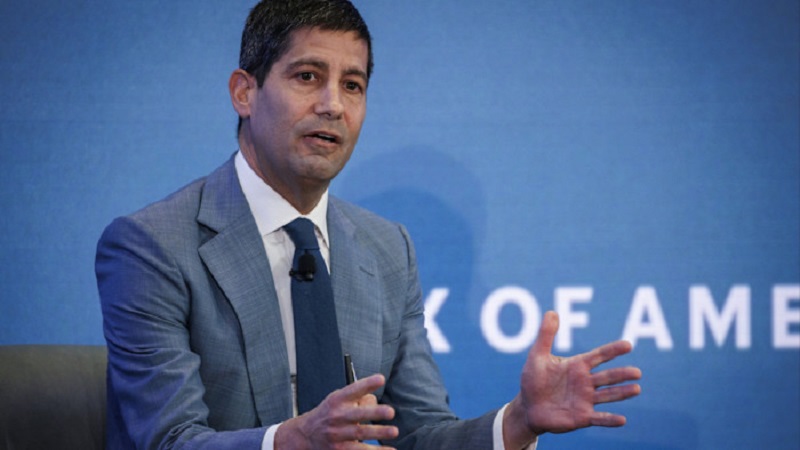
By Adedapo Adesanya
President Donald Trump has named Mr Kevin Warsh as the successor to Mr Jerome Powell as the Federal Reserve chair, ending a prolonged odyssey that has seen unprecedented turmoil around the central bank.
The decision culminates a process that officially began last summer but started much earlier than that, with President Trump launching a criticism against the Powell-led US central bank almost since he took the job in 2018.
“I have known Kevin for a long period of time, and have no doubt that he will go down as one of the GREAT Fed Chairmen, maybe the best,” Mr Trump said in a Truth Social post announcing the selection.
US analysts noted that the 55-year old appear not to ripple market because of his previous experience at the apex bank as Governor, with others saying he wouldn’t always do the bidding of the American president.
If approved by the US Senate, Mr Warsh will take over the position in May, when Mr Powell’s term expires.
Despite having argued for reductions recently, “Warsh has a long hawkish history that markets have not forgotten,” one analyst told Bloomberg.
President Trump has castigated Mr Powell for not lowering interest rates more quickly. His administration also launched a criminal investigation of Powell and the Federal Reserve earlier this month, which led Mr Powell to issue an extraordinary rebuke of President Trump’s efforts to politicize the independent central bank.
-

 Feature/OPED6 years ago
Feature/OPED6 years agoDavos was Different this year
-
Travel/Tourism9 years ago
Lagos Seals Western Lodge Hotel In Ikorodu
-

 Showbiz3 years ago
Showbiz3 years agoEstranged Lover Releases Videos of Empress Njamah Bathing
-

 Banking8 years ago
Banking8 years agoSort Codes of GTBank Branches in Nigeria
-

 Economy3 years ago
Economy3 years agoSubsidy Removal: CNG at N130 Per Litre Cheaper Than Petrol—IPMAN
-

 Banking3 years ago
Banking3 years agoSort Codes of UBA Branches in Nigeria
-

 Banking3 years ago
Banking3 years agoFirst Bank Announces Planned Downtime
-

 Sports3 years ago
Sports3 years agoHighest Paid Nigerian Footballer – How Much Do Nigerian Footballers Earn


